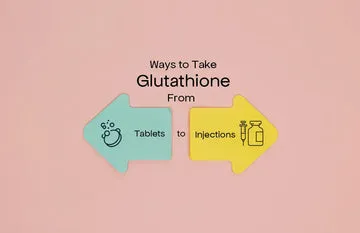Pregnancy often brings with it a host of lifestyle changes, especially when it comes to nutrition and supplementation. In the quest for a healthier, glowing pregnancy, many women ask: is glutathione safe in pregnancy? With this antioxidant getting attention in beauty and wellness circles, it's essential to understand whether it fits safely into a prenatal routine. If you’re an expecting mother or planning to conceive, this is your guide to make an informed decision—without the fluff, without the fear.
Understanding the Basics
Glutathione is a naturally occurring antioxidant produced by the body. It helps neutralize free radicals, supports liver detoxification, boosts immunity, and promotes cellular repair. Because of these benefits, glutathione has become popular as a supplement, especially in the realm of skin brightening and anti-aging.
However, pregnancy brings changes to nutrient balance and metabolism, and supplementation may affect that balance. While it’s widely accepted for general wellness and skin benefits, the real question is—is glutathione safe in pregnancy?
Is Glutathione Safe During Pregnancy?
Pregnancy is a delicate period where every nutrient, supplement, or lifestyle habit can impact both the mother and the growing baby. The body’s natural balance shifts, and what works during regular times may not be appropriate while expecting. That’s why it’s crucial to examine antioxidants like glutathione under a pregnancy-specific lens.
Is glutathione safe for pregnant women to take daily?
The answer isn’t black or white. While glutathione is naturally made by the body, its safety in supplement form hasn’t been established for pregnant women due to limited clinical trials. Without targeted research, we cannot make blanket claims of safety.
Can glutathione be taken during pregnancy every day?
This entirely depends on individual needs and should always be guided by a doctor. For example, if your healthcare provider identifies a deficiency or elevated oxidative stress levels, they may suggest a glutathione daily dose under supervision.
Does glutathione pose risks during pregnancy?
Unknowns include high-dose impacts, long-term child health outcomes, and possible unexpected reactions.
When It Might Be Considered
Despite the caution, there are certain scenarios where glutathione may still be recommended under medical supervision.
-
Doctor-approved due to low glutathione levels or high oxidative stress markers.
-
During early pregnancy, when antioxidant support may be beneficial—but only under supervision.
-
To avoid unregulated IV infusions, a controlled oral supplement could be safer.
How to Use Glutathione Safely in Pregnancy (If Advised)
If your OB-GYN or prenatal specialist approves it, here’s how to keep glutathione supplementation as safe as possible:
Stick to a Low Dose
A mild glutathione dosage per day, like 250–500 mg, is typically considered gentle.
Choose Liposomal Forms
These ensure better absorption and reduce the burden on the digestive system.
Pair with Prenatal Antioxidants
Such as Vitamin C and Vitamin E to support glutathione recycling.
Avoid Long-Term Use
Keep your supplementation short-term unless ongoing use is approved.
Monitor Regularly
Schedule follow-ups to check nutrient levels and pregnancy progress.
These habits help minimize risks while allowing you to benefit from the antioxidant properties.
Pros and Cons
| Potential Benefits | Remaining Risks and Uncertainties |
| Natural antioxidant support | Limited data in expecting women |
| May help counter oxidative stress | Possible effects at higher doses unknown |
| Can encourage better cellular health | Long-term child safety not yet confirmed |
| Oral forms are easier to manage | Self-medication not recommended |
Final Words
Is glutathione safe in pregnancy? The consensus is mixed. It’s not inherently dangerous, but there isn’t enough evidence to fully endorse it without caution.
Here’s what we do know:
-
It’s a powerful natural antioxidant
-
The body produces it on its own
-
Some doctors may recommend supplements for targeted cases
-
Oral forms are safer than injections
-
It should never be self-prescribed or taken without medical advice
If you’re considering glutathione while pregnant:
-
Ask your OB-GYN or midwife for personalized guidance.
-
Never exceed recommended doses.
-
Use only reliable liposomal supplements, and pair them with essential prenatal nutrients.
-
Always monitor your health with regular care visits.
In the world of pregnancy wellness, there’s a thin line between what’s helpful and what’s unverified. Supplements like glutathione may seem promising, but when you’re pregnant, safety should always come first. In short, glutathione might be safe in pregnancy, but only if used carefully and under medical supervision. Let your healthcare provider lead the way.








 Mon to Sat - 10 am to 7 pm
Mon to Sat - 10 am to 7 pm